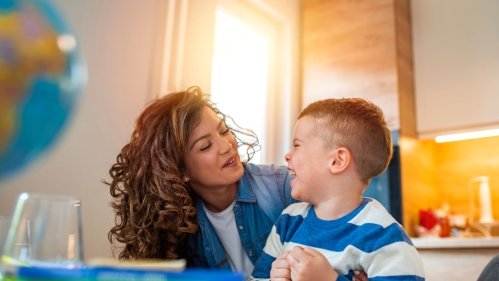
Children (and Families) Healing After Trauma (CHAT) Clinic
About Us
The Children (and Families) Healing After Trauma (CHAT) clinic is an outpatient specialty clinic at the Graduate School of Applied and Professional Psychology of Rutgers University. Formerly, the Foster Care Counseling Project (FCCP), this clinic has provided mental health support for children in resource and relative care for over 30 years. Through a SAMHSA grant with the National Center for Traumatic Stress, CHAT will expand and provide clinical services to children impacted by trauma.
We serve youth ages 3 to 18 years old and their families referred from New Jersey Division of Child Protection and Permanency (DCP&P), local schools, mental health partners, and general community referrals from surrounding Rutgers University.
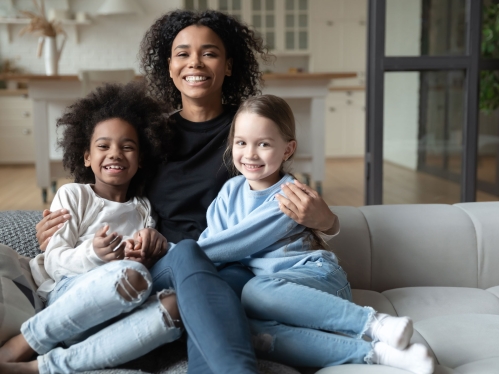
Our Misson
Our mission is to support children and families impacted by trauma to rebuild their identity, establish a sense of safety and foster positive relationships with others. Using a multi-systemic, collaborative treatment approach, we hope to give each individual that has faced complex trauma an opportunity to process their experiences and look toward the future with hope.
Services Provided
- In-Person Evidence-based Trauma-focused Therapy
- Group therapy
- Training/consultation for caregivers, caseworkers and other service providers
- Mentorship for children and adolescents when clinically appropriate
- Transportation for qualifying families
History
The CHAT Clinic evolved from the Foster Care Counseling Project beginning in 1989, when it was founded by David Brodzinsky, Ph.D., an internationally recognized expert in the areas of foster care and adoption. At the time of the Project’s founding, foster care and adoption were primarily the purview of the field of social work and few psychologists were involved with the provision of specialized services for individuals impacted by trauma. CHAT has refined its focus and services as a specialty clinic to serve youth ages 3 to 18 that are impacted by trauma and represent a lower socioeconomic demographic group of families in need of low or no-cost services.
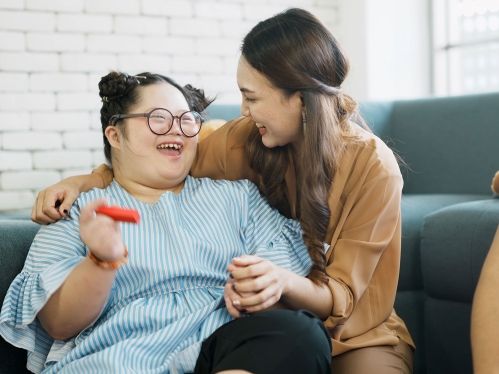


Therapies
The CHAT Clinic serves children in the age range from 3 to 18 years old and their caregivers both within and outside the umbrella of DCP&P. CHAT’s specialty areas address exposure to child abuse and maltreatment, witnessing domestic violence, traumatic grief and loss, racial trauma, neglect, motor vehicle trauma, medical trauma, natural disasters, bullying, and adjustment to resource care.
The CHAT Clinic offers treatment for youth who exhibit symptoms including but not limited to posttraumatic stress, anxiety, depression, nightmares, flashbacks, dissociation, acting out/aggression, sleep difficulties, relational challenges, and stress management for caregivers.
Accordion Content
-
Evidenced based treatment to address the mental health needs of children, adolescents, adult survivors and families who are battling the effects of a single, multiple or complex trauma experience, including grief, violence or abuse (Cohen & Deblinger, 2006). This treatment modality often allows both children and caregivers to better process overpowering thoughts and emotions that are related to the trauma experience/s which can provide individuals tools to learn how to manage difficult emotions in an adaptive way and manage stress, anxiety and depression. TF-CBT is a skills-based model which encourages caregivers and children to practice the critical components in session and at home in order to be effective. The core components of TF-CBT include psychoeducation, parenting skills, relaxation, affective regulation, cognitive processing of the trauma, a trauma narrative, in vivo mastery of trauma reminders as well as conjoint child-parent sessions.
-
Utilizes structured therapeutic games as a primary therapeutic intervention to treat children and adolescents who have experienced abuse (Springer & Murrell, 2013). GB-CBT adopts a directive and systematic approach to treatment while aiming to increase engagement by making therapy fun, relevant and accessible for children and their families. Through role-plays, activities, and processing, children explore and interact with their environments in a way that encourages curiosity and active learning. GB-CBT uses a strength-based approach in emphasizing skill acquisition and working closely with caregivers to reinforce children’s successes and achievements.
-
Addresses the core areas of impact of trauma in children and adolescents (Blaustein & Kinniburgh, 2018). ARC aims to strengthen the caregiving system, help youth understand and effectively respond to their feelings and arousal and build resilience through the development of self-control and self-understanding. ARC meets these goals by creatively engaging children and their families, providing psychoeducation, and implementing routines and rhythms. These strategies support children and adolescents in making meaning of their traumatic life experiences that empowers them to recognize their survival strengths and re-orient them to more present, goal-oriented skills and behaviors.
Start the Therapy Process
If you are interested in the CHAT program or would like to refer someone to the program, please fill out the referral form below.
Within the week, the CHAT Clinic team will reach out to you to answer any questions and begin the intake process.
To reach us directly:
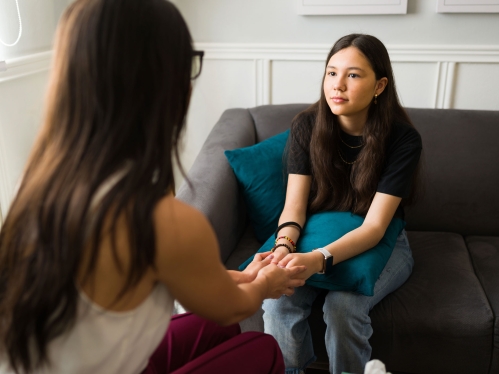
Resources
Information about Child Trauma
For information regarding child trauma please visit The National Child Traumatic Stress Network.
Here are some specific links by NCTSN:
Child Sexual Abuse
Child Physical Abuse
Bullying
Domestic Violence
Information about Resource Care
Children in resource care are some of New Jersey’s neediest and most vulnerable individuals. Many come from chaotic home environments, where they experienced profound neglect, psychological maltreatment, physical and sexual abuse, and/or exposed to parental drug abuse, incarceration and/or intimate partner violence. These children and adolescents have often switched homes and schools several times, never able to feel settled and secure. Establishing safe, stable and nurturing relationships in childhood can have a positive impact on an individual’s psychological and physical health trajectories- the CHAT clinic can help.
Please note these are informational only. Inclusion of these links should not be considered direct referrals or endorsement of these sites.
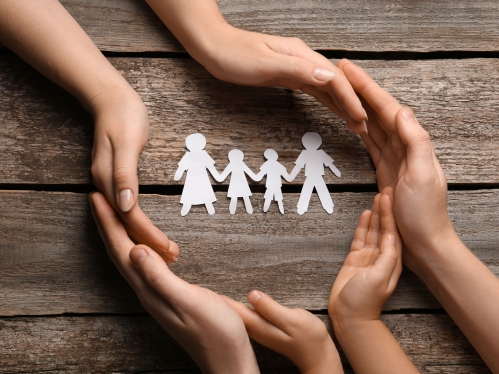
Our Team
Primary Supervisor – Russi Soffer, PsyD
Dr. Soffer is a licensed psychologist in NY and NJ, and the primary supervisor at the CHAT clinic, Children (and Families) Healing After Trauma at GSAPP. Before coming to GSAPP, Dr. Soffer completed a 2-year postdoctoral fellowship at the Child HELP Partnership at St. John’s University. In her role, Dr. Soffer provided specialized trauma- focused cognitive behavioral therapy to youth and their families. During her time there, she also participated in the NCHP, the National Child HELP Partnership, a Category II Center of the NCTSN, aiming to train communities nationwide in integrated school- family-mental health services for children and caregivers exposed to trauma. Dr. Soffer completed her predoctoral internship at Westchester Jewish Community Services (WJCS), where she specialized in PTSD treatment and DBT for suicidality, anxiety, and mood disorders. She has practiced in a variety of settings, including community mental health, inpatient units, schools, private practice, and university counseling centers.
Administrative Coordinator – Clara Safari
Clinic Coordinator – Caraline McDonnell, Doctoral Student
Clinicians
The clinicians at CHAT are doctoral students at GSAPP training to be psychologists. These individuals are dedicated to serving at-risk populations. While providing treatment, student clinicians offer training and consultation to caregivers, DCP&P caseworkers, community organizations, school personnel, and other professions. They also complete thorough intakes and post-treatment assessments at the beginning and end of treatment, respectively, and make recommendations based on findings to optimize each child’s functioning.
Other Practicum Students
Mentorship to children and adolescents is provided by Rutgers undergraduate and graduate-level students. These students are part of the CHAT team and help with assessment, childcare, and administrative responsibilities. Students are provided with a deep understanding of the effects of trauma on children and methods of recovery as well as an opportunity to participate in the healing process through reinforcement of evidence-based coping skills.
Frequently Asked Questions
-
- Any child or adolescent, ages 3 to 18, who has been impacted by some type of trauma is appropriate for a referral to CHAT. Trauma includes but is not limited to: Child abuse and maltreatment (physical, sexual), exposure to domestic violence, traumatic grief and loss, racial trauma, neglect, motor vehicle trauma, medical trauma, natural disasters, bullying, and adjustment to resource care.
- Families can be under or outside the umbrella of DCP&P
-
Services are provided by doctoral students who have received extensive training in trauma informed care and the treatment modalities: the ARC Framework, Trauma-Focused Cognitive Behavioral Therapy and Game-Based Cognitive Behavioral Therapy. These clinicians receive both group and individual supervision on a weekly basis.
-
Any individual can make a referral to the CHAT Clinic.
Referral Link: https://rutgers.ca1.qualtrics.com/jfe/form/SV_6Finugi1xmcnr4a
If you have any questions about the referral process, please contact our office at 848-445-7789 or email chatclinic@gsapp.rutgers.edu.
-
The length of treatment is typically 6 to 12 months.
-
Services are currently grant-funded and, therefore, free of charge.
Contact
The Children (and Families) Healing After Trauma Clinic
Phone. 848-445-7789
Fax. 732-445-4866
chatclinic@gsapp.rutgers.edu
Services are provided at:
41 Gordon Road, Suite A
Piscataway, NJ 08854
Primary Supervisor of the CHAT Clinic
Russi Soffer, PsyD
Phone. 848-445-1152
russi.soffer@gsapp.rutgers.edu
Administrative Coordinator
Clara Safari
cs1701@gsapp.rutgers.edu
